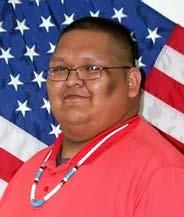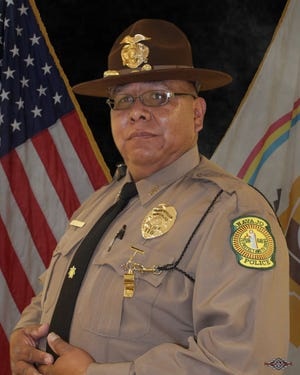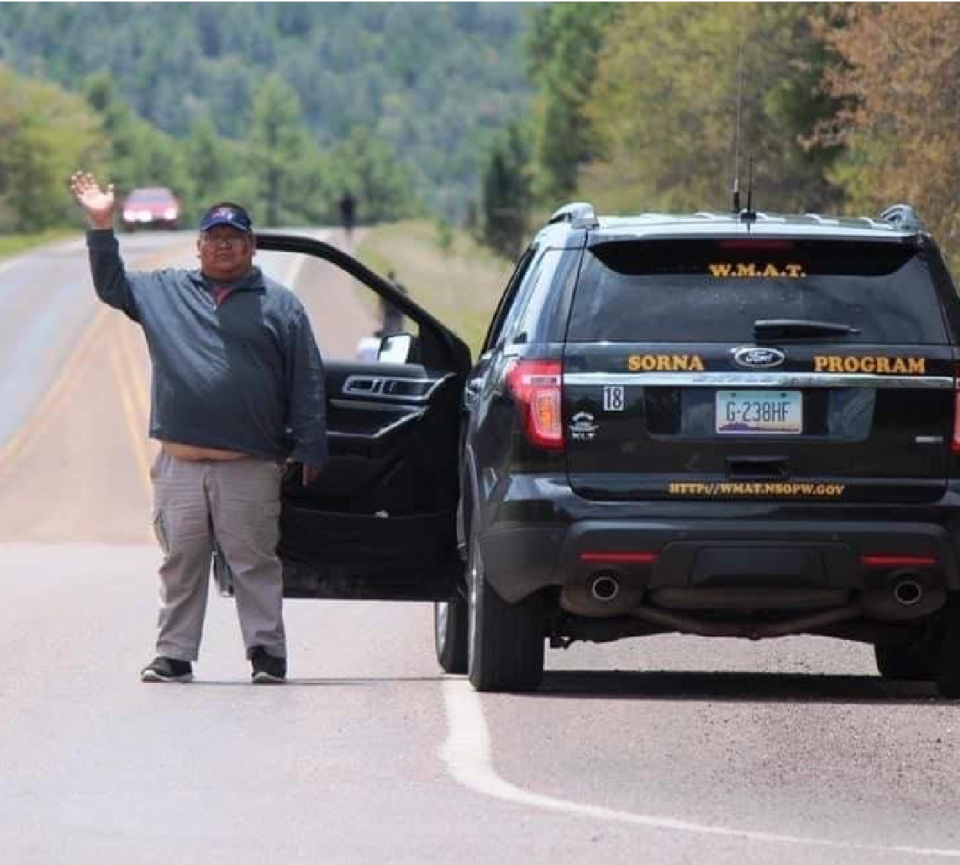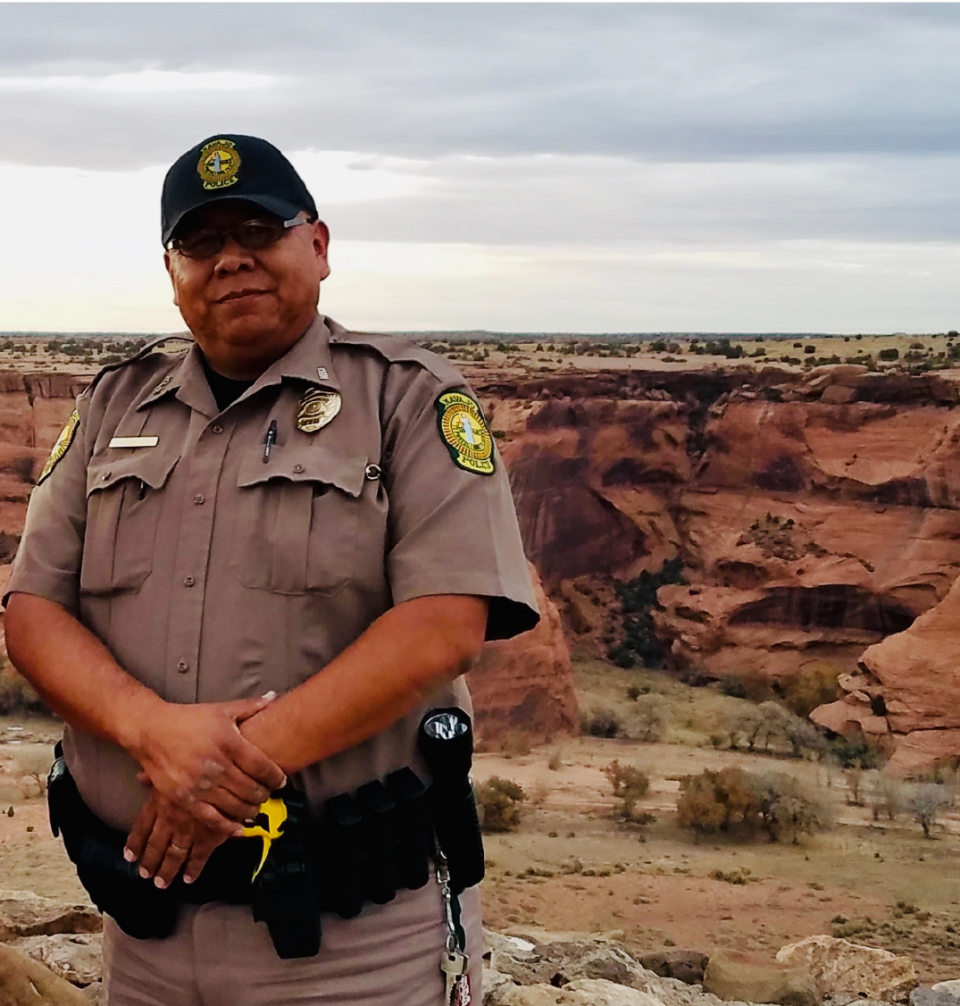In June and September, tribal communities lost two SORNA officers who had been key to implementing the Sex Offender Registration and Notification Act (SORNA) on tribal lands. In June, Navajo Nation Police Officer Michael Lee was the first Navajo officer to die from COVID-19. In September, White Mountain Apache Tribal Police SORNA Compliance Specialist Elmer Lamson also died of COVID-19. As SORNA officers, Lee and Lamson played key roles with their respective tribes — as well as positively impacting the overall SORNA program.
“This is a huge loss for their families, friends, communities, the tribes they worked for — and the SORNA community as whole,” said Dawn Doran, deputy director of the U.S. Department of Justice’s Office of Sex Offender Sentencing, Monitoring, Apprehending, Registering, and Tracking. “Both Elmer and Michael were deeply dedicated to the safety of their communities, and to ensuring accurate sex offender registration processes in particular. They were instrumental to public safety efforts in their respective communities and beyond. We will miss them as friends and colleagues, and are saddened for the immeasurable loss to the law enforcement field.”
The federal team lead for the Tribal Access Program (TAP) in the U.S. Department of Justice, Allison Spratlin, echoed these sentiments. “The TAP team was saddened to hear about the recent passing of two key partners. Elmer Lamson served as the terminal agency coordinator for the White Mountain Apache Tribal Police Department on matters relating to access to FBI Criminal Justice Information Services systems, and was our main point of contact for TAP implementation for that tribe,” she said. “Michael Lee served as a SORNA officer for the Navajo Nation Police Department at the district office in Chinle, Arizona. These two public servants worked hard to improve public safety in their respective communities and their losses will be deeply felt.”
U.S. Marshal for the District of Arizona David P. Gonzales also mourned the loss. “The U.S. Marshals Service was saddened to hear of the passing of Elmer Lamson, of the White Mountain Apache Police Department,” Gonzales said. “Elmer was a leader in combating crimes against children and holding sex offenders accountable and he will be missed. Our deepest sympathies for the family and colleagues. Elmer will always be remembered for his welcoming personality, positive attitude and gentle smile. Rest in peace and thank you for your dedication and service to the White Mountain Apache Tribe, the SMART Office and the U.S. Marshals Service.”
Lamson worked at White Mountain Apache Tribe for nearly a decade, spearheading the tribe’s implementation of SORNA and serving as the tribe’s SORNA grant manager. Before that, he led Hopi Tribe’s efforts to implement its SORNA program, ensuring the tribe had the necessary code, policies, procedures and registry system in place. Throughout his tenure at White Mountain Apache Tribe, Lamson worked with the tribal community to serve as a resource for other tribes implementing SORNA. He provided training on SORNA in Indian Country as a consultant with the Fox Valley Technical College and served as a mentor to other SORNA officers. In 2015, Lamson’s understanding of SORNA and commitment to sex offender registration was instrumental in the Department of Justice’s selection of White Mountain Apache Tribe to participate in the first year of TAP, during the user-feedback phase. Based on his experience, Lamson was regularly invited to present and answer questions at pre-deployment sessions for incoming TAP tribes, and he generously provided feedback and tips to the TAP team and other tribal users alike to maximize use of TAP. Last year, Lamson volunteered White Mountain Apache Tribe as a test case to pilot the Tribe and Territory Sex Offender Registry System–National Sex Offender Registry interconnection. TAP tribes now using this connection are benefiting from his knowledge and expertise.
“Elmer was a friend and colleague to many at the Department of Justice Tribal Access Program,” said Spratlin. “His willingness to assist others, his dedication and commitment to his colleagues and friends, his professionalism, and his friendly and outgoing approach to work and to life are just a few descriptions of Elmer Lamson, the person we knew and loved. His loss will be felt by many, and his life will have an enduring positive effect on all.”
Lamson was well known throughout Indian Country for providing training and assistance and sharing his experiences implementing SORNA and managing a SORNA program — much of it on his own time. Many tribal SORNA programs benefited from his experience and his willingness to offer advice and direction, from code development to legislative amendments, from grant applications to how to work effectively with SMART, the U.S. Marshals Service and Assistant U.S. Attorneys. He was a fierce advocate for SORNA and tribal registration programs, always eager to solve issues and push SMART for answers, clarifications and better ways to provide assistance and be responsive to tribes. If he needed an answer, he would not hesitate to call each and every person at the SMART Office. If there was a training, he always registered and was a willing participant or presenter. His contribution to the work of the SMART Office is immeasurable and will continue to have an impact on tribes working to improve community safety.
“Elmer was a selfless advocate for his community, for Indian Country and for public safety everywhere,” said SMART Senior Policy Advisor Yahya Fouz, who serves as the contact for tribes in Arizona. “He had an immeasurable drive to work with everyone and anyone to get the job done — whether it was securing funding for his tribe, educating the community on sex offenders, training newly hired SORNA officers from tribal jurisdictions hundreds of miles away, or working with multiple federal agencies to hold absconders accountable.”
For Navajo Nation, Officer Lee was the lead SORNA officer who managed a massive undertaking to submit hundreds of sex offender records to the FBI’s National Sex Offender Registry database file from all seven Navajo police districts — the largest tribal jurisdiction in the country with the highest percentage of registered offenders. Under Officer Lee’s oversight, Navajo Nation increased its sex offender information sharing with FBI databases tenfold in the span of only a few months. More Navajo sex offender records were submitted to NSOR using TAP with Officer Lee’s assistance than had been submitted in the previous two years combined. SORNA officers from across Navajo Nation — an area larger than the size of West Virginia — sought out Officer Lee’s insight, experience and expertise. Officer Lee’s dedication to public safety informed his drive to maintain Navajo Nation’s SORNA implementation and ensure proper community notification.
“Officer Lee’s dedication to public safety was unwavering,” said Doran. “The SMART Office’s determination that the Navajo Nation continues to substantially implement its sex offender registration program is a testament to Officer Lee’s devotion to providing yet another layer of protection for the Navajo Nation community.”
Spratlin concurred. “Navajo Nation Police Officer Michael Lee was a champion among all and was not only a friend and colleague to many at the Department of Justice, but he was also a trusted adviser and mentor among law enforcement professionals,” she said. “He will be greatly missed, but the positive and genuine influence on the lives he touched will endure.”
Fouz, who worked with Lee on the FBI database submission efforts, agreed. “Michael was a class act,” he said. “He was a compassionate and dedicated law enforcement officer who always went the extra mile to protect the public. His work with the SORNA program was emblematic of his commitment to ensuring sex offenders were held accountable and were made known to the community.”
The SMART Office, the U.S. Department of Justice TAP team and the U.S. Marshals Service send their condolences to the White Mountain Apache Tribe and Navajo Nation on the loss of Lamson and Officer Lee.






